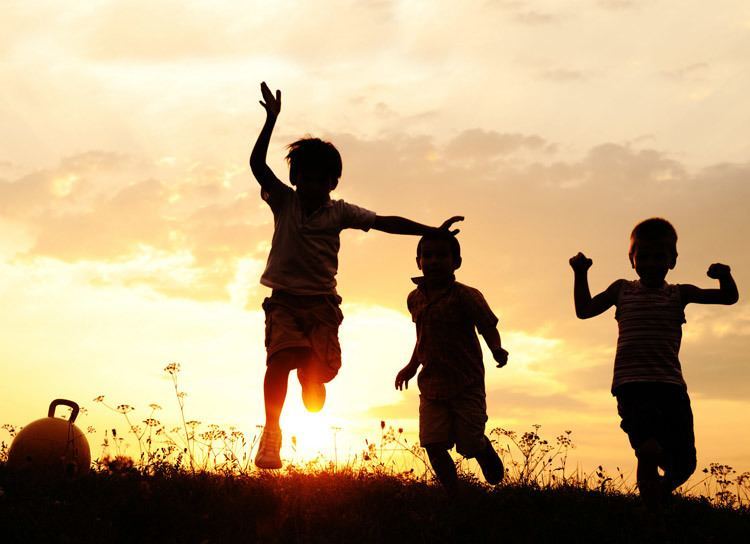We all like to talk about our childhood. I mean, why not? Those carefree days with only broken crayons to worry about; childhood is something we all wish to get back to. Whenever we talk about childhood, all our memories seem to flash right in front of our eyes with cinematic clarity and to achieve that effect we must make sure our verbalisation is absolutely free from errors. Let us see how!

Grammatical Structures To Be Implemented:
A good sentence is all about the right mix of appropriate grammar, vocabulary and structure. Following are some grammatical structures that needs to be implemented when you are talking about childhood:
- used to + infinitive
We use used to + infinitive when we talk about things that happened regularly in the past but do not happen now. In the negative we say didn’t use to + infinitive:
Example: I used to play in the snow every winter.
2. would + infinitive
When we are telling a story or recalling a situation from a long time ago, we often prefer to use would + infinitive to describe repeated behaviour in the past. However, both would and used to are possible:
Example:
“I remember growing up in home town. My life was completely different. I would get up early every day and go to school. In the winter, I would play in the snow with my friends.”
Note that we can only use would to describe past events and actions. It is not usually used with states. To describe past states we can only use used to.
3. Using Irregular Verbs.
Some verbs are more difficult than others. There are the ordinary regular past tense verbs such as ‘lived’, ‘walked’ and ‘played’, which are pretty easy to remember. However, there are also the irregular ones such as ‘was’, ‘went’, and ‘made’, which you need to make sure you know. Try using new irregular past-tense verbs in your diary.
How To Talk About Different Things About Childhood?
TALKING ABOUT PAST ABILITIES
When you talk about past abilities you have to use ‘could’ and ‘could not’ not ‘can’ and ‘cannot’. If you use ‘used to’ you can’t use ‘could’ or ‘could not’; you have to ‘I used to be able to’ or ‘I did not use to be able to’.
Example:
When I was nine I could read music and I could play the euphonium a little. The only problem was I didn’t use to be able to carry it to school by myself so my dad had to drive me to school but he couldn’t give me a lift home.
TALKING ABOUT YOUR PAST THOUGHTS ABOUT THE FUTURE
When you were a child you probably thought that your life was going to be different, perhaps that you would be famous. When you want to talk about such things as ambitions, dreams or intentions (whether they came true or not) you need to use ‘would’ or ‘(was) going to’.
Example:
My school friends and I thought we would play a concert at the local youth club but we never practised enough. I knew I was going to have to find new bandmates to succeed.
OTHER THINGS TO THINK ABOUT
When you talk about your childhood, you might want to talk about toys you played with (Barbie dolls, He-Man action figures, board games and television programmes you liked.
Vocabulary You Can Use When You Are Talking About Childhood:
There is not a lot of vocabulary that is essential for speaking about childhood. Most of it is actually pretty general, like “friends” or “friendship” and “parents” and “parenting.” But here are some useful words and phrases to know:
- upbringing – the way a child is raised – ie “He had a strict upbringing.”
- bring up/brought up – the process of raising a child – ie “He was well-brought up.”
- have good manners – to be polite and well-behaved – ie “She has good manners. She always helps her neighbours.”
- You also need to use some phrases regarding memories and remembering:
- lasting impression – something that affected you deeply
- takes me back – makes me recall something from the past
- _____ escapes me – I can’t quite remember
- flooding back – to suddenly remember in great detail
Sample Questions and Answers About Childhood:
What is your most vivid childhood memory?
A: I remember going out walking with my friends one day. We often used to go walking in the countryside near my home, and this time we walked really far over the fields. It started to rain really heavily, so we hid under a big tree, but then there was a thunderstorm, and you really shouldn’t stay under a tree when there’s lightning. It was really scary.
Q: Are you still in touch with your childhood friends?
A: Not really, no. We drifted apart over the years. I still get together with my best friend from primary school maybe once every year or two, but that’s all. I suppose I see what people are up to on Facebook.
Q: What was your favourite toy when you were a child?
A: Hmm… Let me think… I was really into dinosaurs when I was a child, I suppose my favourite toy would have been a dinosaur. Honestly, though, I can’t remember that much.
Q: Is it important for children to have fun? Why?
A: Well, yes, of course. As you get older, life tends to get more and more stressful. There are so many social and economic pressures that trouble us, so I think people should be allowed to enjoy their childhoods. I mean, just look at children. They are so innocent and carefree by their nature. Why should we spoil for them? Let them have fun.
In A Nutshell:
The most interesting thing about English language is that there is always a right way to express any kind mood. Right vocabulary coupled with correct grammatical structure can make any speech or conversation come alive.






